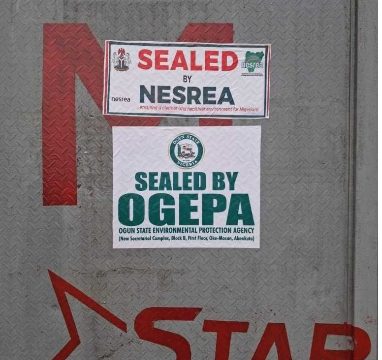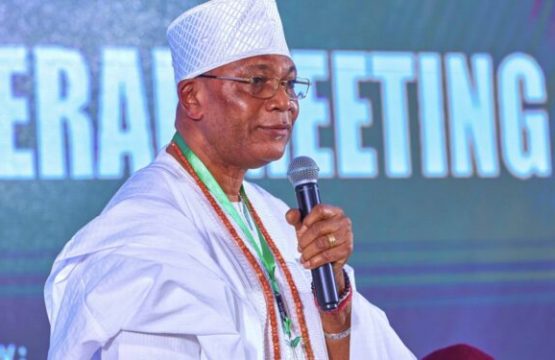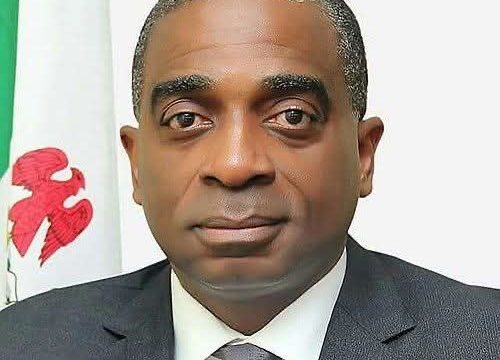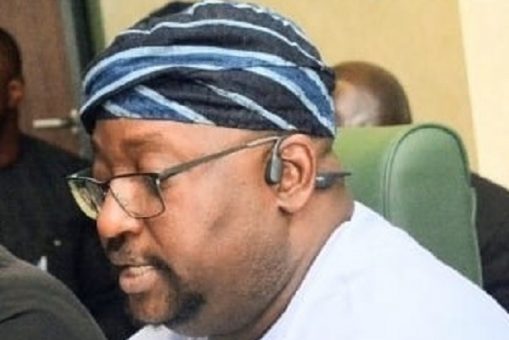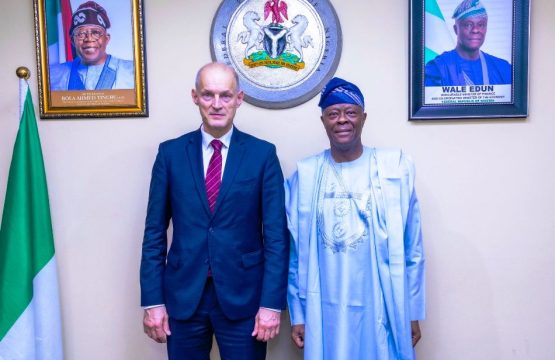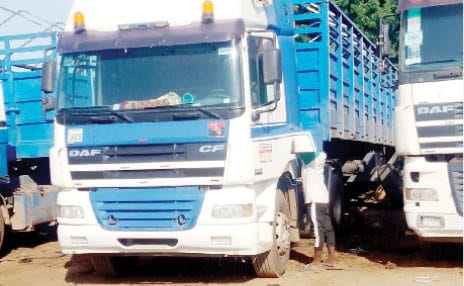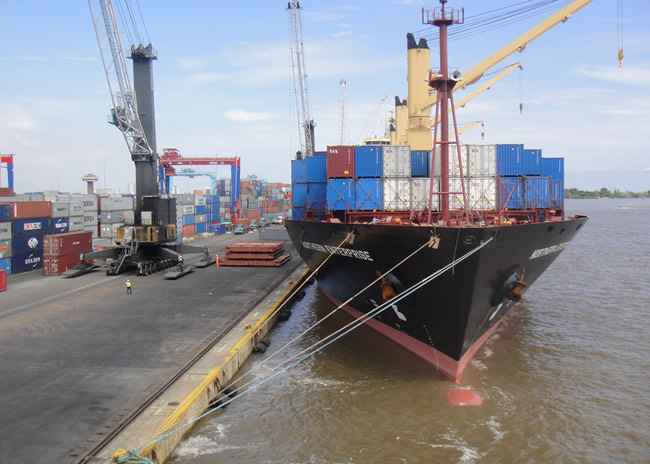Oyeyimika Adeboye, is the Managing Director, Cadbury Nigeria Plc. She supervises the West African operations of Mondelēz International, one of world’s largest snack companies.
In this interview, culled from The Nation, Adeboye shares insights on the manufacturing environment in Nigeria as well as regional integrations and other issues.
How do we ensure dollar liquidity?
I can tell you some things from the manufacturing side.
The government needs to encourage non-oil exports, it needs to incentivise people that can produce and export.
Also, the government needs to incentivise those who are producing locally to feed local.
We import almost everything in Nigeria because some other countries had invested and we don’t want to invest. But we need to wake up to the hard truth of reality and encourage local manufacturing.
Let me give you a simple example: packaging materials.
A lot of packaging materials are imported. We have their components here but the infrastructure to make them isn’t here. What stops our government from encouraging the people to put the infrastructure in place here, so that they can make them here?
There are lot of ingredients that we are importing.
When I look at those ingredients, the basics are here in Nigeria, but the incentive to do them is not here. If government puts in place what I called measures to encourage local production; that will help a lot. Unfortunately, today, government sees local producers mainly for revenue generation, we are being taxed left, right and centre, and as you do that, you are like killing the hand that feeds you, because we are the real sector and what we need is the encouragement in a manner to benefit the economy. We employ a lot of people, we use ingredients locally, we use suppliers locally, encourage all the value chains to work locally. That’s going to bring enormous change.
Look at it this way, we have operations across the world and I always ask my colleagues in other countries why are ingredients cheaper in their countries.
India makes Bournvita. Bournvita in India is cheaper than Bournvita in Nigeria.
You know why? Very simple, India has its own sugar, they grow sugar, they mill sugar, they refine sugar, they don’t import sugar. India has its own flour, they don’t import any wheat, they have wheat grown locally, milled locally; the government encourages it. Packaging materials, they have them locally.
So, they aren’t spending dollars or anything. Everything is done in Indian Rupees in India. By the time they finished making everything, it’s cheap, so they can afford to export and make money from export. But in Nigeria, our sugar is imported, we are paying dollars for sugar.
Yes, there are three sugar suppliers approved by the CBN in Nigeria – BUA, Dangote and Golden Penny; they are not growing sugar and making it in Nigeria, they bring in milled sugar and refine it in Nigeria. It’s imported. Flour is imported in Nigeria. Skimmed milk powder, dairy, is imported, we don’t have dairy in Nigeria, whatever we have is not enough, in India, they have milk, their government encourages dairy locally.
That’s the true essence of backward integration, using your resources internally to feed internally. All those things help. So, the government needs to look at ways to incentivise local manufacturing.
Yes, you can tax them, but then encourage them first. You can give them moratorium. We used to have pioneer status but now it has disappeared because people don’t see the benefit in it. People are doing things that truly can benefit Nigeria but because Nigeria is not rewarding that, the incentive to do it is not there.
Talking about incentives, can you please elaborate more on these in practical terms?
There are many ways to incentivise people. Let me use farmers and dairy farming as examples. You can have facilities given to them that are subsidised so they can invest in mechanised farming, they can grow their farms, because they don’t have the capital on their own to do that.
A lot of our farming in Nigeria is manual, and we have good arable land. When I was growing up, we had mountains of groundnuts, cocoa and so on, all those things have disappeared. We think government needs to go back and do that, for local manufacturers.Then, for exports, we used to have Export Expansion Grant (EEG), years back when I joined this business, it was something that the government encouraged for genuine exporters with proofs of exports.
For instance, at Cadbury Nigeria, we were processing cocoa beans, getting cocoa butter out; which we don’t use in Nigeria, it’s exported, it’s a globally traded commodity, people are demanding for it; back then, government was encouraging us with scaled incentives, such that when you export a certain quantity, you get certain incentives; that’s no longer there. Even as at now, 2024, we are still struggling to get claims for incentives that we had done some years ago.
So, it doesn’t incentivise anyone to want to do such because the process is ridiculous and the more painful thing is that when you finally get it back, you can only use the document for duty, you can’t use it for tax, you can’t set it off against anything beyond duty.
This makes the whole thing counterproductive. Let me give you an example: if you are in a business where you have duty certificate of about N7 million and your import duty is only N1 million, that means you get N6 million sitting around that you can’t use for anything, then it’s not worth it. So, the government needs to put a structure in place to promote exports, and there are people who can advise the government on this.
We need a structure that incentivises exports, incentivises local manufacturing, incentivises farming in Nigeria, to put in place a structure that is manageable. And this is not about fertiliser alone, because that’s the common noise out there, we need mechanised farming. To feed 200 million people is not easy and for a man to take a hoe and be digging, that cannot feed 200 million people.
With mechanised farming, we will feed our population and export the rest, and we will get the dollars we are looking for. I asked our cocoa people to get some information about cocoa in Ghana and Cote d’Ivoire, two of the biggest cocoa exporters in the world and was wondering why Nigerian was not there in the top chart. What I found out, I was disheartened.
We exported cocoa to Ghana, some of the seedlings that Ghana used to grow, came from Nigeria, but Ghana organised itself, focused on what it needed to do, established a cocoa board and put a structure in place to manage their exports.
In Nigeria, we don’t have that. Many years ago, we had a cocoa board that was working and we were able to manage things better, but that board has literally disappeared and has no power.
The people that are importing cocoa globally want structure, they want quality, they want to know who they are paying to; that’s what Ghana has done, that’s what Cote d’Ivoire has done, same for Brazil, all the countries that are the biggest cocoa exporters have structures; Nigeria can get in there because we have the land, but we are not focused on the structure.
For us at Mondelēz for instance, last year we brought our Cocoa Life project to Nigeria to support farmers, to teach them how to grow, how to treat, how to preserve, how to dry, all the things they do in cocoa farming, we taught them.
But you see, that’s like a drop in the ocean, because you can have the best cocoa in the world, if you don’t have people coming to buy their cocoa in the right way, the government will not be benefiting from it.
Today, most of the cocoa money that is coming is not going to the government, it’s going to buying agents and middlemen that are working with farmers. In Ghana, Cote d’Ivoire, there are no middlemen, you sell your cocoa to the government, who exports the cocoa to all the buyers, that way the revenue is in the hand of the government.
Government pays the farmers, in fact, the farmers are well looked after.
About five years ago when cocoa price dropped significantly, the big cocoa countries – Ghana, Cote d’Ivoire, – came and demanded that they should be given an amount to be added to the cost of cocoa, so that their farmers could get a bit more, they got an extra pay beyond the price of cocoa then.
Those governments could do that because they took charge of the processes.
But we’ve been having many subsidised interventions in trillions of naira without much to show for it, how do we ensure that these interventions actually get to the intended beneficiaries?
Simply, put in place a structure that has integrity, that is accountable, that’s what other countries had done. Then, we need to get ourselves to a place as a nation where people that are found to have done what they are not supposed to do or didn’t do what they ought to do are punished, I call that consequence management.
Part of our problems in Nigeria is that we have all a lot of resources but they are wasted from all fronts; money disappearing into the pockets of people. We need strong consequence management. Corruption is all over the world, it’s not unique to Nigeria, we don’t have the bragging right to corruption, everywhere; whether it is America, Europe, England, anywhere in the world there is corruption.
Where other countries have an advantage over us is that they have a process to make sure that you are brought to book, if you are caught stealing public money, you are brought to book, we don’t have that here, we have what I call a pretense but not a reality. When people start being properly penalised for doing the wrong thing, things will improve. Even if we have some structures in place as you said, but there is no accountability, put accountability in place, bring to book those that are not able to account for what they have been given and be serious about it.
When you start making scapegoats of two to three persons, and people see that the government is serious, we will make progress. We have huge potential as a nation, we are blessed with huge resources; I keep going back to this arable land thing because you know we have countries in our region who are living in the desert, yet they are making money, so how much more we?
What happened to your cocoa subsidiary?
We still have the cocoa factory in Ondo, we just removed it from being subsidiary for convenience to be part of us. So, it is still processing cocoa beans, some we export, some we use internally, it’s still there, there is backward integration for us. The reality is that the export business benefits from our factory in Ondo, we buy cocoa beans from local farmers, we process these, and we are supporting local farmers who are on Cocoa Life Scheme as well.
So, in terms of local content, what percentage of your operations is local?
We don’t operate like that, I won’t give you a percentage that’s locally sourced. For example, all our people are local, and in terms of our input, cocoa bean is local; how do you define sugar that you buy in Nigeria but it’s imported, it’s local; skimmed milk powder, it’s local, we buy soya, we buy sorghum, all these things are local. But, are they really local? Because when you asked me about local input, I can tell you that the things I’m buying in naira are all local, my packaging materials are all local, but they are not made in Nigeria, I’m buying them from Nigerian suppliers, who bring them in.
In the strict sense of what you are looking for, we’ve never calculated it because it will be difficult to do so until we get to a situation where some of those ingredients are being made locally. I won’t call the packaging material local, even though I’m buying it from the local supplier and paying in naira when I know for sure the component is not made in Nigeria.
If you are the special adviser to the government, what are those things that you think will jumpstart the local manufacturing industry?
I could give you a long list, but let me start with power, which is a massive requirement. For us, for example, we are working with an independent power provider at the back who has a gas line and the facility to provide power for us. Power is so important. Our factory operates 24/7, when there is power failure it costs us money, so getting reliable power is very important. Reliable, affordable, sustainable power; I know that’s asking for a lot of thing, but it’s very important.
Then, the right infrastructure. We have a factory in Ikeja, to move products from Ikeja to my customers in Kano, the trucks take them, it takes the trucks one to two weeks; the trucks break down on the road because the roads are bad, we should explore train haulage, we should make the roads better. Then, security, some of the drivers do hire police with them because of insecurity. How does an operator operate in Nigeria when there is such level of insecurity?
Security is very important. I can go on and on, I had already talked about local incentives for manufacturers; put incentives in place that will enable us to get ingredients locally, we can’t make everything ourselves. In Cadbury Nigeria we have several input, some of these input can be made in Nigeria if manufacturers in Nigeria are incentivised to do so.
Then, put incentives in place for schools. In our recruitment process, we go round to talk to students and we found out many students don’t want to come and work in a factory because they don’t see it as attractive. Our education system has been structured in such a way not to encourage students to come into manufacturing, it’s only those who are desperate that want to come here. They see sports and entertainment as big money, quick easy money. Then you go to medicine, but even now, our student doctors are leaving the country. And as manufacturers, we need all those scientists.
In the back here, we need food technology scientists, we need engineers and we have so much need here. But the way we are growing our talents is somehow. As a manufacturer, the biggest thing is to have the right talent pipeline for the future, we don’t.
The government needs to spend money in motivating education.
When I look at the budget for education, it’s not small, but when I look at what we are getting out of education
I wonder how the money was spent. So, education is also very important for the future of manufacturing in Nigeria. Otherwise, what will happen is that people will bring their factory, bring their engineers, that’s what some companies do. China is investing in its talents and exporting its talents, we should invest in our talents too and use our talents here in Nigeria.
How do we improve the operating environment, from the legislative point of view?
Things like multiple taxes, they need to look at how these things are done. We pay corporate tax, withholding tax, education tax, we have all sorts of levies. We don’t have a problem, for example, paying education tax if we see where the funds are going, but we don’t see it. Is it spent on education, who is accounting for it? We have a Police Trust Fund, why are we paying police fund when we still need to put security on our vehicles going out, people don’t feel safe, our customers don’t feel safe, we’ve had a few of our distributors kidnapped, yet we are paying police fund for security.
There are couple of multiple taxes out there that need to be checked. Then, you want to encourage manufacturing, at some point you need to look at how to tax. I’m in favour of indirect taxes, because indirect taxes mean everybody pays, direct taxes mean that only those you can catch will pay.
” If I want to go and do business in Ghana, even though it’s ECOWAS, the requirements are cumbersome. We should make it easier.”
Talking about regional integration and trades, how do you find these?
We have an operation in Ghana and ECOWAS works for us, we export TomTom to Ghana, we import Hot Chocolate from Ghana, generally it works. There is a banking process (Pan African Payment and Settlement System (PAPSS) that hasn’t worked, we hope that as the (new) CBN Governor settles to work, they can bring that back to life, which affords us the need not to pay dollars. If we are in ECOWAS, we should not be paying dollars to Ghana and Ghana should not be paying dollars to us, there’s a way we can trade with ourselves without involving dollars.
The previous CBN team had started the process but that process is yet to come to fruition.
It needs to work because until that works, we are still stuck with this dollar issue, which we should get ourselves out of, at least for ECOWAS.
The African Continental Free Trade Area (AfCFTA), we are expectant, and we are ready as a business. Currently, we import Clorets from Egypt. Like I said, we export some things to other countries across West Africa; we have a business operation in South Africa, there is chocolates coming from South Africa that we could bring to Nigeria, there is Bournvita from Nigeria that we can take to South Africa; but right now because there is no free trade zone, it’s expensive. There is demand for products from Nigeria but with the duty rate now, at 40 per cent, it’s not worth it, it’s too expensive. So, we need to get those things working for us to operate on a bigger scale, we will benefit. The same way as you look at Europe and European Union (EU), when they put a system in place and the entire group benefits, as a continent we need to do same for Africa.
Besides, then you have issues of Visas and all that. Other global free trade zones like Europe are successful because of less restrictions and people are able to trade across. But here, if I want to go and do business in Ghana, even though it’s ECOWAS, the requirements are cumbersome. We should make it easier. We should put a process in place to facilitate this.
A classic example, we were at NAFDAC the other day and talking about approvals of some products. While Ghana accepted that NAFDAC approvals are enough for Nigerian made products for the Ghanaian market, NAFDAC was opposite, with a long list, like visiting the factory, carrying out inspection and all those things that make you wonder why does Ghana have a FDA; we have FDA in Ghana, we have NAFDAC in Nigeria, there should be some collaboration between entities like that.
● Culled from The Nation

